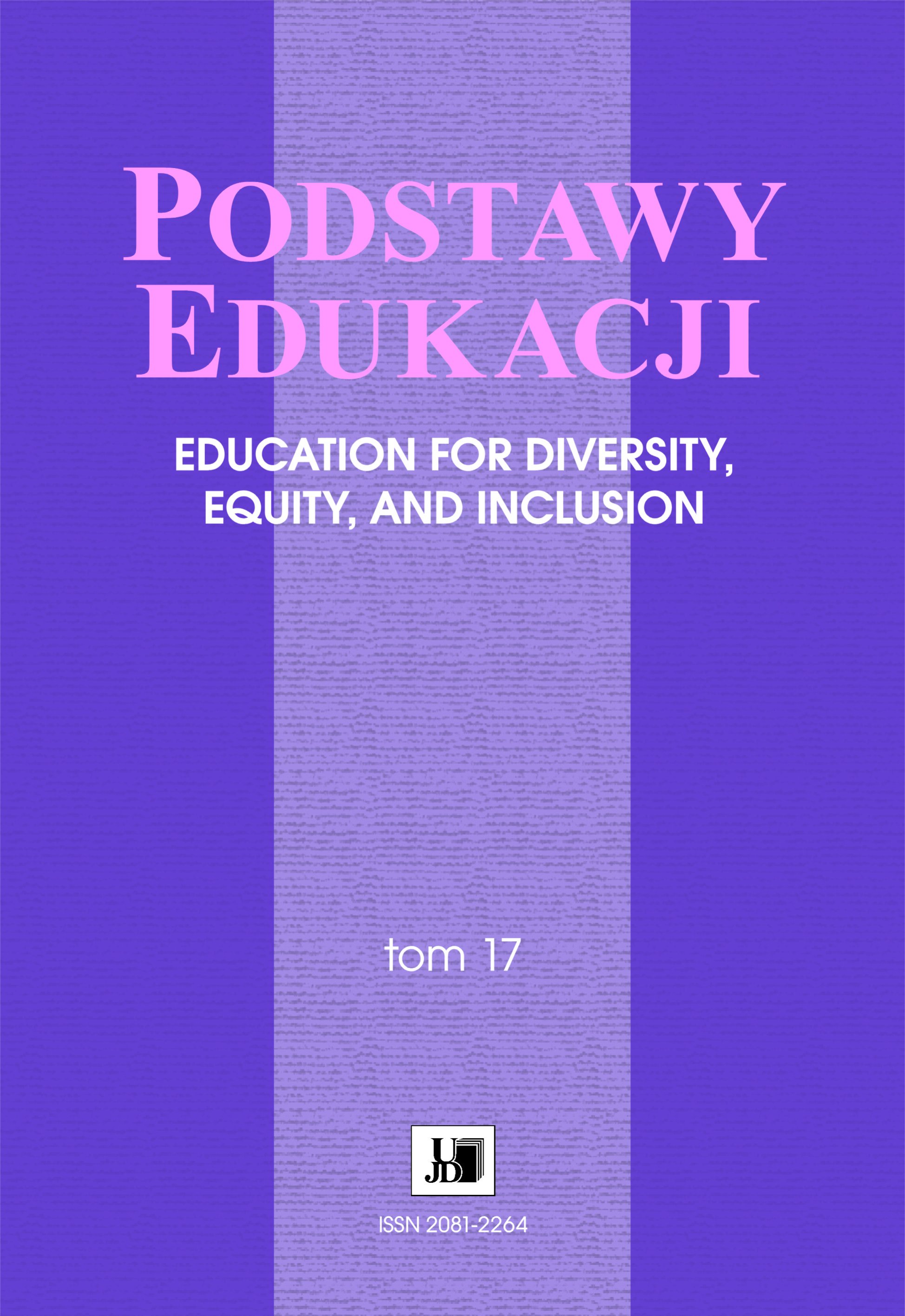Abstrakt
Artykuł jest próbą zdefiniowania istoty nauczania inkluzyjnego oraz wskazania konieczności jego implementowania do szkół jako odpowiedzi na potrzebę budowania społeczeństwa otwartego. W artykule zarysowano szkic historyczny założeń nauczania inkluzyjnego, które stały się jednym z fundamentów jego skrystalizowania. Określono w nim problem zróżnicowanego nauczania w klasie inkluzyjnej, gdzie nacisk położony jest na znaczenie tworzenia odpowiedniego środowiska edukacyjnego, organizacji procesu nauczania, modyfikacji programów w celu osiągnięcia sukcesu edukacyjnego przez dzieci z różnymi specjalnymi potrzebami edukacyjnymi. Nie bez znaczenia wydaje się także podjęta próba określenia istoty oceniania uczniów w przyjętej koncepcji nauczania zróżnicowanego, dającej nauczycielom spersonalizowaną informację o postępach edukacyjnych swoich uczniów i umożliwiającą bieżącą zmianę strategii ich nauczania w celu większego stymulowania samodzielności uczniów podczas zdobywania wiedzy, umiejętności i kompetencji.
Bibliografia
Bąbka, J. (2014). W poszukiwaniu strategii edukacyjnej przeciwdziałania wykluczeniu społecznemu osób z niepełnosprawnością. Interdyscyplinarne Konteksty Pedagogiki Specjalnej, 4, 87–104.
Bronfenbrenner, U. (1978). The Social Role of the Child in Ecological Perspective. Zeitschrift fur Soziologie, 7(1), 4–20.
Bronfenbrenner, U. (2021). The Ecology of Human Development. Cambridge: Harvard University Press.
European Agency for Development in Special Needs Education. (2009). Retrieved from: https://www.european-agency.org [access: 13.11.2024]
Калініченко, I. (2013). Сучасні підходи до організації навчально-виховного процесу в інклюзивних школах. Спеціальна педагогіка, 3, 44–46.
Колупаєва, А., Савчук, Л. (2010). Діти з особливими освітніми потребами та організація їх навчання. Київ: Видавнича група «АТОПОЛ».
Leszczyński, S. (2021). Pedagogiczne aspekty personalizmu Wojciecha Chudego. Łódź: Wydawnictwo Naukowe Towarzystwa Pedagogiki Filozoficznej „Chowanna”.
Лубовского, В., Ципиной, Н., (pед.). (1981). Воспитание детей с задержкой психического развития в процессе обучения. Москва: НИИ общей педагогики.
Mielczarek, M. (2022). Wykluczenie edukacyjne jako jedno z zagrożeń wykluczenia społecznego nieletnich z młodzieżowych ośrodków wychowawczych. Roczniki Pedagogiczne, 14(50), 87–102.
Miłkowska, G. (2005). „Od odrzucenia szkolnego do wykluczenia społecznego młodzieży”. In: W. Kubiak, B. Urban (eds.), Uwarunkowania i wzory marginalizacji społecznej współczesnej młodzieży (pp. 495–512). Kraków: Wydawnictwo WAM.
Mittler, P. (2000). Working Towards Inclusive Education. Social Contexts. London: David Fulton Publishers.
Reich, K. (2014). Inklusive Didaktik. Bausteine für eine inklusive Schule. Weinheim und Basel: Beltz Verlag.
Szczepkowska, K. (2020). Jak skutecznie realizować proces kształcenia w klasie zróżnicowanej. Warszawa: Ośrodek Rozwoju Edukacji.
Szymański, M. (2012). Edukacja w zmieniającym się społeczeństwie. Warszawa: Wydawnictwo Difin.
Таранченко, О., Найда, Ю. (2012). Диференційоване викладання в інклюзивному навчальному закладі. За: А. Колупаєвої (ред.), Навчальний курс та методичний посібник (cc. 126–139). Київ: Видавнича група «А.С.К.».
Warnock, M. (1978). Special Educational Needs. Report of the Committee of Enquiry into the Education of Handicapped Children and Young People. London: Her Majesty’s Stationery Office.

Utwór dostępny jest na licencji Creative Commons Uznanie autorstwa 4.0 Międzynarodowe.
Prawa autorskie (c) 2024 Marcin Białas, Ałła Wasyluk
